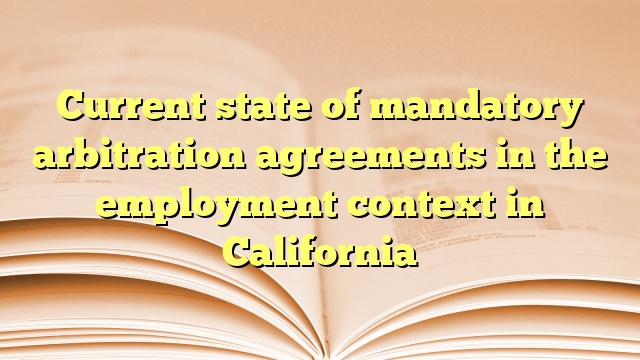One Minute Update: In 2019, California passed AB51, prohibiting employers from requiring job applicants or employees to sign a mandatory arbitration agreement as a condition of employment. AB51 was quickly enjoined by a federal trial court, and, in February 2023, the federal appeals court struck down AB51 as violative of the Federal Arbitration Act. California still has some avenues left for further appeal (to the full Ninth Circuit or to the U.S. Supreme Court), but it seems unlikely that this recent decision would be overturned if California did so. Thus, California employers may continue to require mandatory arbitration agreements of its employees if they so desire, at least for now.
Also, in June 2022, the U.S. Supreme Court held in Viking River that individual PAGA claims could be compelled to arbitration if the plaintiff-employee had signed an arbitration agreement with the employer. The court further held that PAGA plaintiff who had to arbitrate such plaintiff’s individual claims, and who waived arbitration of representative claims, did not have standing to litigate the representative part of the PAGA claims in court after the arbitration of the plaintiff’s individual claims was completed. However, in February 2023, a California court of appeal disagreed with the U.S. Supreme Court, in Galarsa v. Dolgen California LLC , and held that the plaintiff’s representative PAGA claims could proceed in court after the arbitration of the plaintiff’s individual claims was completed. This issue will ultimately be decided by the California Supreme Court in the pending case of Adolph v. Uber Technologies, Inc.

